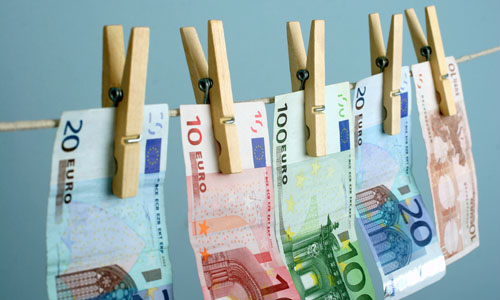The project „Organized Crime and Corruption Reporting“ (OCCRP) published the study „Troika Laundromat“ on Monday. Investigative journalists revealed how European banks had washed around 4.6 billion US dollars from Russian and other channels. In addition to Lithuanian banks, Deutsche Bank was also involved until April 2017. At the centre of the scandal is Troika Dialog, one of the formerly largest Russian private investment banks. The network allowed Russian oligarchs and politicians to secretly use dirty money to acquire shares in state-owned companies, to buy real estate both in Russia and abroad, to buy luxury yachts or rent music superstars for private parties. This Thursday, despite repeated scandals, member states are expected to reject the EU Commission’s proposal for a tightened blacklist of money laundering states.
MEP Sven Giegold, financial and economic policy spokesperson of the Greens/EFA group commented:
„The big money laundering business continues to flourish in the European Union. The OCCRP report reveals how European banks are earning a fortune from the criminal activities of dictators, autocrats and other criminals. The member states must take up the fight against dirty money consistently and to adopt Commission’s blacklist on money laundering in the Council. This list needs to be adopted now, and improved later. We cannot afford to make the better the adversary of the good. The EU governments are guilty of complicity if they block the black list any longer. The EU member states must no longer allow dirty money to be smuggled through banks, companies and football clubs under their eyes. The revelations reaffirm the demands of the TAX3 final report for much stronger control over money flows from Russia and other opaque sources.
Once again, Deutsche Bank is attracting attention as a criminal institution. Christian Sewing as former member of the managing board and current CEO personally owes an explanation“.
Background:
The European Union’s Home Affairs and Justice Ministers are expected to decide on Thursday (7 March) on the European Commission’s blacklist on money laundering. In the final report of the European Parliament’s Special Committee on Financial Crime, Tax Evasion and Tax Avoidance („TAX3“) of 27 February, MEPs call for consistent measures against money laundering.

